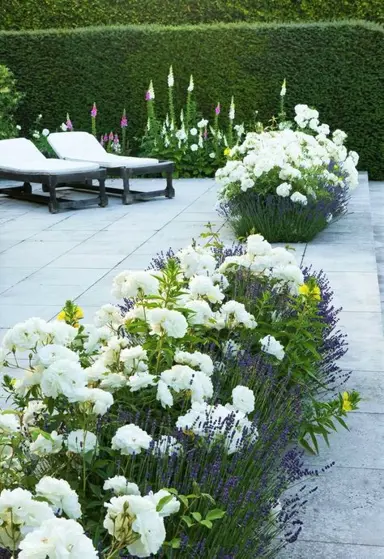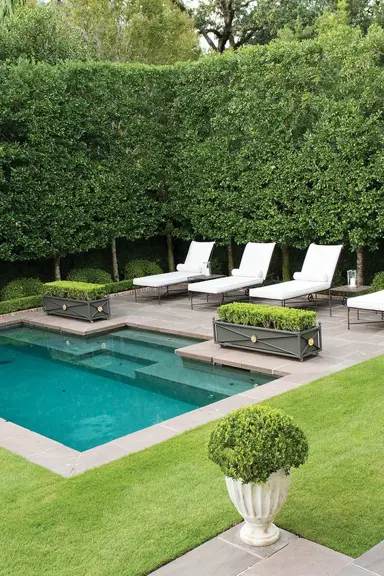
Abies, commonly known as fir trees, are popular evergreen conifers in New Zealand for their classic Christmas-tree shape and year-round foliage. These cold-hardy trees are ideal for feature planting, windbreaks, or creating a tall screen. Their symmetrical form and soft needles make them attractive in both formal and naturalistic landscapes. Abies thrive in well-drained soil and prefer cooler climates, making them well-suited to many NZ regions. The Plant Company offers high-quality Abies trees for sale, ready to be delivered directly to your garden.
Why? Our plants are in high demand due to our reputation for delivering high quality products at competitive prices. We may have these in production or be able to source these for you, so please feel free to contact us and our fantastic team will respond to your enquiry. Alternatively, we have a world class plant finder tool that you can use to help find alternative options.
Abies amabilis Spreading Star, commonly known as the Amabilis Fir, is a dwarf variety grown for its layered foliage and short stature. This evergreen...
Abies Archers Dwarf is a dwarf variety grown for its foliage and short stature. This evergreen conifer produces short branches with soft, silver-blue...
Abies balsamea Nana, commonly known as the Dwarf Balsam Fir, is an evergreen shrub grown for its lovely foliage. New growth is light green and...
Abies cephalonica, commonly known as the Greek Fir Tree, is a columnar conifer that features glossy, dark green needles. New growth is light green...
Abies concolor, commonly known as the White Fir or Concolor Fir Tree, is a striking and colourful tree. It features showy, blue foliage held as a...
Abies concolor Candicans is a variety of Abies grown for its foliage and stature. This evergreen conifer produces upward branches with blue, needle...
Abies Hosta la Vista is a dwarf variety of Abies grown for its foliage and short stature. This evergreen conifer produces short, stubby branches with...
Abies concolor Piggelmee is a dwarf variety of Abies grown for its foliage and short stature. This evergreen conifer produces short, stubby branches...
Abies nordmanniana subsp Equi-trojani, commonly known as the Caucasian Fir Tree or Trojan Fir Tree, is dense, pyramidal conifer that typically grows...
Abies forrestii is a conifer that grows with a columnar shape bearing dark green, glossy needles. New growth is light green and contrasts well with...
Abies fraseri, commonly called the Fraser Fir or Frasier Fir, grows with a columnar habit and hosts dark green, glossy needles. New growth is light...
Abies koreana, commonly known as the Korean Fir Tree or Korean Spruce Tree, is a spectacular conifer with showy cones. It produces dark green...
Abies koreana Alpine Star is a dwarf variety grown for its foliage and short stature. This evergreen conifer produces short branches with equally...
Abies koreana Aurea, commonly known as the Golden Korean Fir, is grown for its foliage, stature, and colourful cones. This evergreen conifer produces...
Abies koreana Blauer Eskimo is a dwarf variety grown for its foliage and short stature. This evergreen conifer produces short, stubby branches with...
Abies koreana Blue Emperor is a dwarf variety grown for its foliage and short stature. This evergreen conifer produces short branches with...
Abies koreana Green Carpet is a dwarf variety of Abies grown for its cushion like foliage and short stature. This evergreen conifer produces short...
Abies koreana Kohout’s Ice Breaker is a dwarf variety of Abies grown for its foliage and short stature. This evergreen conifer produces short, stubby...
Abies koreana Silberlocke is a variety of the commonly known, Korean Fir, and is a spectacular conifer with the most amazing cones. It produces dark...
Abies koreana Silberperle is a miniature variety of the commonly known, Korean Fir, and is a spectacular conifer. It produces very short, dark green...
Abies koreana Silver Show is a variety of the commonly known, Korean Fir, and boasts impressive foliage colouring. It hosts green needles which curl...
Abies lasiocarpa Compacta is a dwarf variety of Abies grown for its foliage and short stature. This evergreen conifer produces short, stubby branches...
Abies lasiocarpa Green Globe is a dwarf variety of Abies grown for its foliage and short stature. This evergreen conifer produces short, stubby...
Abies nordmanniana Golden Spreader is a dwarf variety of Abies grown for its cushion like foliage and short stature. This evergreen conifer produces...
Abies pinsapo, commonly known as the Spanish Fir Tree, is an evergreen tree with a conical growth habit and blue-green foliage. The leaves are 1.5 –...
Abies procera Blaue Hexe is a dwarf variety of Abies grown for its foliage and short stature. This evergreen conifer produces short branches with...
Abies procera Glauca is grown for its foliage and showy cones. This evergreen conifer produces stout branches with short, thick, powdery blue...
Abies religiosa, commonly known as the Oyamel Fir Tree or Sacred Fir, is a large conifer that will grow to 25 m tall with a trunk diameter of up to 2...
Abies vejarii, commonly known as the Abeto Tree, is a large conifer that will reach heights of 25 m and span 7 m wide. It hosts needles that will...
In addition to their visual appeal, Abies trees are renowned for their adaptability to different environments and their ability to thrive in various climates, which is particularly beneficial for the diverse weather conditions found in New Zealand. This adaptability ensures that regardless of the specific conditions of your garden, there's likely an Abies species that will suit your needs perfectly. Their versatility extends beyond aesthetics, offering practical solutions for privacy, noise reduction, and even energy savings by acting as natural windbreaks.
Abies trees, part of the Pinaceae family, are commonly referred to as fir trees. They are evergreen conifers, which means they retain their lush foliage throughout the year. This characteristic makes them ideal for adding consistent greenery to your landscape. Their evergreen nature ensures that your garden remains vibrant and full of life, providing a backdrop of lush green that can be enjoyed in every season.
Beyond their evergreen nature, Abies trees are also notable for their longevity and durability. These trees can thrive for many years, offering a long-term investment in your garden's beauty and functionality. Their ability to withstand harsh weather conditions, including strong winds and heavy snowfall, without losing their visual appeal makes them particularly valuable in regions with challenging weather patterns.
Abies trees are known for their symmetrical shape and soft needles. The needles are typically flat, and their cones stand upright on the branches, which is a unique feature compared to other conifers. These trees can range from medium to large in size, making them versatile for various landscaping needs. Their symmetrical form and vertical cones add an element of architectural interest, enhancing the structural design of any garden space.
The bark of Abies trees is another distinguishing feature; it is usually smooth and gray, adding a subtle textural contrast to the soft foliage. This combination of features not only contributes to the aesthetic appeal but also provides a habitat for various forms of wildlife, supporting biodiversity within your garden. Additionally, the pleasant aroma of their needles can enhance the sensory experience of your outdoor space, making it more enjoyable for relaxation and leisure activities.
In New Zealand, several varieties of Abies trees thrive due to the country's diverse climates and terrains. Some of the popular species include:
Each of these varieties brings unique characteristics to a garden, allowing for creative combinations and design possibilities. Choosing the right variety for your specific location and needs can significantly enhance the overall appeal and functionality of your landscape.
The Plant Company has grown and marketed many varieties. These are highlighted below in case you are looking for a specific variety:
Evergreen Beauty
Windbreak and Privacy
Wildlife Habitat
Low Maintenance
Design Tips
When incorporating Abies trees into your landscape, consider the following tips to maximize their aesthetic and functional benefits:
Suitable Companions
Pairing Abies trees with other evergreen conifers or deciduous trees can create a balanced and harmonious garden. Consider planting them alongside species such as:
These companion plants can enhance the aesthetic appeal of your garden by providing contrasting textures, colors, and forms. A well-planned combination of different plant species can create a cohesive and visually interesting landscape.
The Plant Company has a great stock of high-quality Fir trees. We appreciate that buying online is somewhat of a leap of faith, given you are putting your trust in us. Please rest assured that we only ship plants that we would happily buy and plant ourselves. Trust in The Plant Company to supply your Abelia needs and allow us to impress you both with our quality and service. Our impressive Google Rating shows we are good at what we do!
Planting Tips
Proper planting is crucial for the successful growth of Abies trees. Here are some tips to help you get started:
Following these planting guidelines will help ensure that your Abies trees establish quickly and grow into healthy, mature trees that enhance your landscape.
Maintenance Practices
To keep your Abies trees healthy and thriving, consider the following maintenance practices:
By following these maintenance practices, you can ensure that your Abies trees remain healthy and continue to thrive, providing beauty and benefits to your garden for years to come.
Whether you need assistance finding the plant you’re looking for or you simply want to know more about who we are and what we do, we invite you to get in touch with us today. A member of The Plant Company team will get back in touch as soon as possible.


